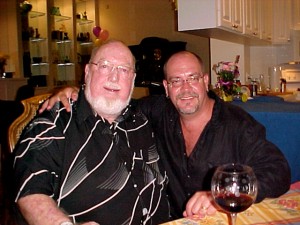SF/F Now and Irradiating the Object: M. John Harrison conferences
Warwick University (UK)
21-23 August 2014
SF/F Now (22-23 August) is a 2-day international, interdisciplinary conference exploring the current research into the fantastic (in any medium) and the ways in which sf, fantasy, and the weird grapple with and illuminate the crucial political and social issues of the moment.
It will consist of conventional panels and a series of innovative workshops led by pairs of international specialists exploring the relation of fantastic fiction to contemporary issues: Animal Studies; Crisis & Protest; Energy & Petrofiction; Environmental Studies; Humanity 2.0; Utopia & the City; Science Studies; World Systems & World Sf. The workshops are designed to allow all participants the opportunity to benefit directly from discussion with all our attending experts.
Workshop leaders include Gerry Canavan (Marquette), Caroline Edwards (Birkbeck), Steve Fuller (Warwick), Joan Haran (Cardiff), Veronica Hollinger (Trent), Roger Luckhurst (Birkbeck), Graeme MacDonald (Warwick), David McNally (York), Charles Sheppard (Warwick), Stephen Shapiro (Warwick), Imre Szeman (Alberta), and Sherryl Vint (UC Riverside).
We invite proposals (300-500 words) for 20-minute papers or pre-constituted panels (3×20 minute papers on a related theme) on topics relating to the current state of the fantastic, contemporary research into the fantastic, or the relation of the fantastic to social and political issues, including but not restricted to those covered by the workshop titles. Please include detail of institutional affiliation and any AV requirements.
Deadline for proposals 31 March 2014. For further information, join our FB event page SF/F Now (http://on.fb.me/1ce1dfn)
SF/F Now will be preceded by a one-day conference, Irradiating the Object: M. John Harrison (21 August 2014), on one of Britain’s leading sf and fantasy writers and critics. Deadline for proposals 31March 2014. Selected papers will appear in a collection co-edited by Mark Bould and Rhys Williams. Irradiating the Object: M. John Harrison, in collaboration with Gylphi. For further information, join our FB event page Irradiating the Object (http://on.fb.me/1dSlKmV).
A small number of travel and accommodations bursaries will be available for students attending all three days of the conference(s). For those wishing to apply, please include a CV with you proposal.
Please address any queries and submit proposals to Rhys Williams (A.Rhys.Williams@warwick.ac.uk) and/or Mark Bould (mark.bould@gmail.com).
